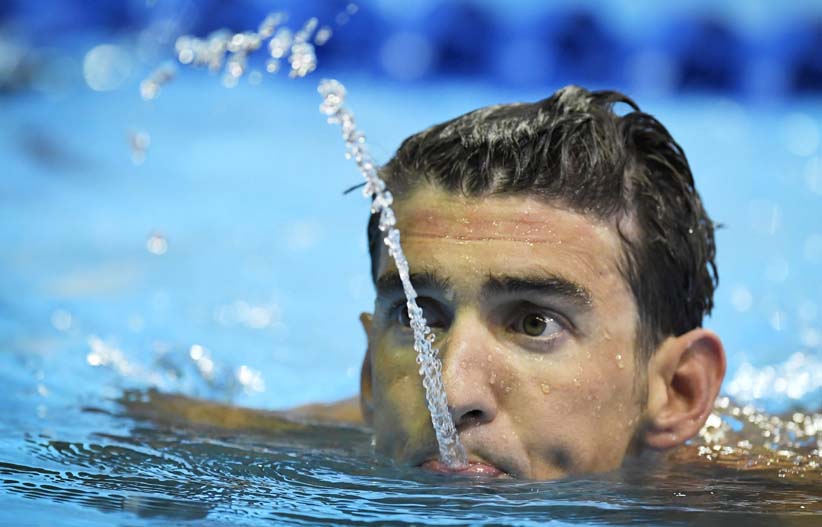About Time They Cared For Their Most Vulnerable
2By The Spotter
‘And sin, young man, is when you treat people like things’ (Terry Pratchett; Carpe Jugulum).
In a really significant article in the latest Weekend Herald, Joel Kulasingham reported on the thoughts of Roger Mortimer, NZ Athletes Federation boss. It came after Olympic legend Michael Phelps’ admission that sport at the highest level had left him high and dry as a sort of emotional basket case once his career had ended.
Mortimer says that psychological problems begin to manifest from an early age when young, elite athletes begin identifying themselves with the term ‘sportsperson’, rather than as someone who plays sport. That adaptation has the fairly dreadful consequence of shutting off usual aspects of learning and development. No doubt this includes education and in social development.
Those comments are pretty eye-opening, even allowing for the current competitive climate we live in. And when social media and the very real need to respect individuality gets added to the mix, we hear about these kinds of issues a lot more than even a couple of years ago.
The most damning remark is the one that is the real worry though; in truth it almost borders on a type of wilful neglect from those running things (in this case ‘wilful’ being ‘couldn’t really care less’), when Mortimer states ‘I honestly believe our system is playing Russian roulette with the welfare of young men and women’. He goes on to say that their well-being is ‘completely dependent on whether they come across someone in their life that will keep them grounded’.
Mortimer didn’t say it but in simple terms, it’s a health and safety issue. It’s about
implementing, carrying out and reviewing robust and compassionate policies relating to pastoral care. The English school I work at would be stripped of every last shred of its accreditation if it didn’t have these types of policies in place and being acted upon for the welfare of students. Why should things be any different in a high-performance sporting environment?
Are there in fact related, decent policies in place already? It’s beyond dire if there are not. The way Mortimer was commenting you’d have to think they are pretty flimsy and piecemeal if such mandates do actually exist.
Here is my take with three points on what should be happening as soon as possible:
- There needs to be a compulsory mentor programme for younger athletes coming into any high-performance sport pathway, or system. The assigned mentor does not include their coach being that actual person.
- The realities of what high-performance/high-level sport involves (the sacrifices, the hours, the tough, pressurised environment) should be made crystal clear to the athlete and their immediate family before the athlete enters any such environment.
- Mortimer’s concerns should be the catalyst for an immediate review, and quite possible change in the way high-performance sports bodies in this country go about their responsibility of pastoral care of those within their systems. Especially so in the case of athletes aged under 18.
Those who sit with cushy jobs or on a nice number on a Board within these organisations might like to consider the well-being of the people who keep them in their actual positions. Because without the athletes, they don’t exist.
And let’s eliminate here and now, (because there is so much of it at every juncture these days), any bullshit and spin on this issue: Would those in charge be fine with having the blood on their hands of any young athletes who may choose to end their life early because they were crying out for some support and couldn’t find it?
By the way, if you want to know what an effective pastoral care policy looks like, my school would have a half-decent one to show.
Email: talltree@xtra.co.nz (Paul Montague)


Excellent piece Paul, I’m in complete agreement. Although my girls are much younger, I have friends whose children are at that critical junction in life – very talented, but not necessarily talented enough to hit the absolute heights they strive for. I hope that most sports are managing this, but sadly I doubt it’s the case.
Grateful thanks, Aiden- I’m glad to know it resonated with you and at least a few.
I know it’s easy to stand back, not be involved and throw stones, but part of what I wrote is based on a frustration with a lack of accountability. And I’m really sorry to say that this phenomenon is prevalent across so many sectors in society. People surely would know what I mean- a bit too much of the old ‘she’ll be right’ mentality (at best), or outright selfishness (tending toward worst).
And I’ll protect their privacy, but I had a really interesting mail from someone who knows top-level sports people well within their line of work. Their take is that the lack of coping mechanisms we are providing for our athletes is something that westerners used to decry and denigrate in the days of the old communist bloc countries pushing their athletes to succeed, to basically breaking point.
The public (and many in the sports media/public) here would likely completely disagree with those sentiments, but is it really all that different? Perhaps not as cruel or hardline, but quite possibly bad enough.
Within the Kulasingham article I based my piece on, an anonymous Olympic gold medallist opined they would almost rather have finished fourth. That is a pointer to all not being right, surely. And we know that things aren’t good at all with previous revelations coming out about Olympic gold being all that matters. It seems a silver medal is almost nothing. And that’s just bloody awful.